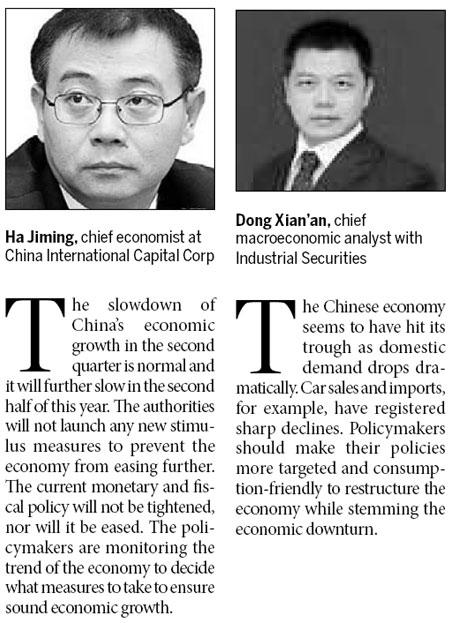
BEIJING - World Bank economists have highlighted the need for China to raise its interest rates despite concerns over a continual economic slowdown indicated by the second-quarter growth rate released on Thursday.
"As expected, the pace of economic growth is slowing down in China, after very rapid growth earlier this year, but in my opinion, the growth will be robust enough to continually normalize the monetary stance," said Louis Kuijs, a senior economist at the World Bank China office.
China has pumped large amounts of liquidity into the economy since late 2008 after it was hit by the global financial crisis. As it resumed a high rate of growth in the first quarter of this year, policymakers have started to tighten monetary policy.
Kuijs told China Daily that the best way to normalize the overall monetary stance is via interest rates, if the nation wants to control macroeconomic risks stemming from previous massive monetary expansion and the possibility economic growth proceeds too quickly, as seen following rampant asset price increases.
China's gross domestic product (GDP) expanded 10.3 percent in the second quarter year-on-year, compared with 11.9 percent in the first quarter. "The (second-quarter) growth rate remains very high," Sheng Laiyun, a spokesman for the National Bureau of Statistics, said on Thursday.
With China's deposit rate now below the consumer inflation rate, there is still scope to raise the interest rate, said Ardo Hansson, lead economist at the World Bank's Beijing Office.
Low interest rates have led to over investment and real estate speculation by encouraging investors to search for higher yields. Raising it would reduce the stress of establishing property price control measures, said Hansson.





